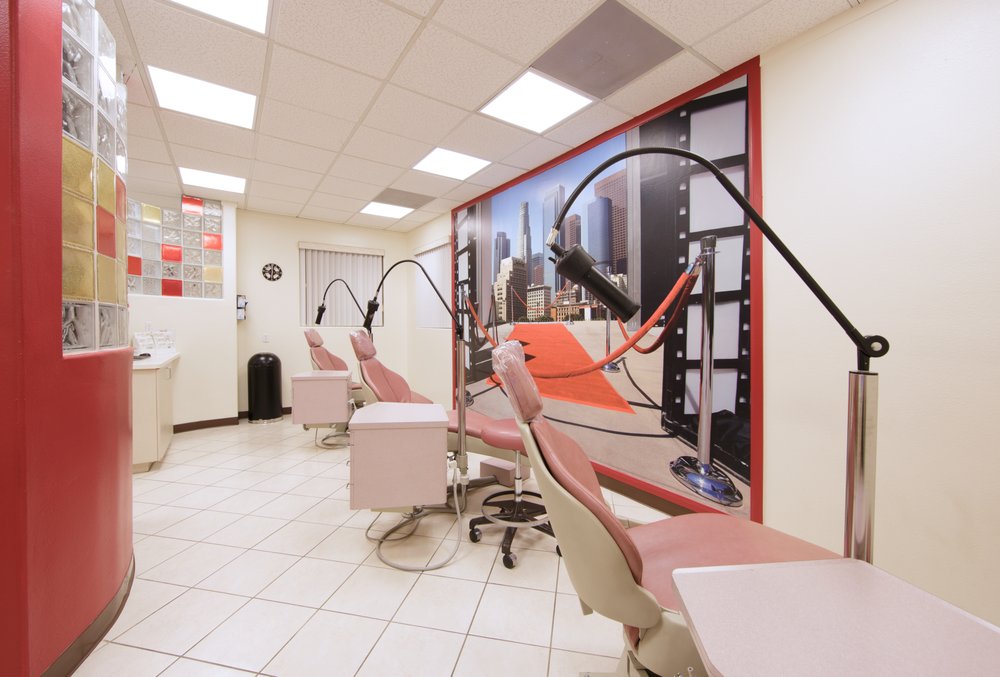Preventive and dental care

Your partnership with your dentist is key to maintaining good dental health. Every member of your family plays an important part in maintaining and establishing good dental health all through your life.
For a pain-free, high-quality life, good dental health is essential. A healthy mouth and teeth are important for your overall health.
Although the steps to prevent dental problems are simple and straightforward, they do require a commitment to a daily schedule. The routine starts in your infant years and goes on for the rest of your life, with some modifications.
Brushing
Good dental health starts with brushing your teeth at least twice daily. Children should be supervised from the time they are babies and continue brushing until they can do it themselves, which is usually around age 6. To keep children on track with brushing, supervision is necessary for many children.
These are some general guidelines to brush properly:
- Fluoride toothpaste can be used (your dentist may recommend one).
- Keep your toothbrush at 45 degrees to your gums and teeth
- Use circular motions to gently brush your hair
- Use the same motion to brush the inner surfaces of the teeth
- Brush the inner surfaces of the upper and lower front teeth with a toothbrush tip
- Scrub surfaces that are chewing
- Make sure to brush your tongue
- Rinse your mouth thoroughly
Flossing
Flossing removes plaque from the surfaces of your teeth and beneath your gums. Brushing your teeth once per day removes food particles and plaque. It is an essential step in your dental hygiene routine.
General guidelines for proper flossing:
- Wrap about 18 inches worth of floss around your middle finger
- You can hold the other end of the stick with your other hand.
- Use the floss between your teeth to create a sweeping motion.
- Make sure you floss both surfaces of your teeth
- Also, floss below your gum line
- Every tooth should be flossed
You may need a threader, or another device for people who have braces, bridges, or other dental fixtures. Ask your dental professional for instructions.
You can ask your dentist or dental hygienist for specific instructions about brushing, flossing, and other preventive dental care techniques.
Diet
- Your diet plays an important role in dental health. Children especially need to have the right amount of fluoride in their diets, regardless of whether they are receiving it from the local water supply or through supplements or application by a dentist.
- Your dentist can tell you if any supplements or treatments are required to meet fluoride standards.
- Healthy gums and teeth can only be achieved by eating a healthy diet. Sugary snacks and sodas make it difficult to maintain healthy gums and teeth. Sugary drinks and foods can cause cavities and other serious dental problems.
- Brush your teeth immediately after you have finished eating or drinking sugary snacks. If this is impossible, rinse your mouth with water to get rid of some sugar.
Dental professionals
Your dental hygienist and dentist are also part of your team. Some dentists may offer specialized services if they have special training or are doctors.
Your dental health professionals include:
- Dentist
- Dental Hygienist
Dental specialists:
- Periodontist
- Orthodontist
- Maxillofacial and Oral Surgeons
Under normal circumstances, it is recommended that you visit your dentist at least twice per year for routine exams and procedures. You may need to visit your dentist more often if you have any dental problems or cavities.
Your dentist may refer you to a specialist if your dentist finds that gum disease has developed. Periodontists are trained to treat gum disease and its complications.
Dental hygienists can clean your teeth professionally, taking out plaque that has not been removed by brushing and flossing. They can also help you brush your teeth properly and assist you in flossing.
Oral and Maxillofacial surgeons are also dental specialists. They have four years of dental education and can treat many complex dental conditions, including:
- Dental extractions
- Wisdom tooth extraction
- Implant surgery
- Corrective jaw surgery
- Facial injuries
- TMJ disorders (temporomandibular joint disorder)
Orthodontists can correct misaligned jaws, crooked teeth, and other chewing or biting issues. Braces and other dental appliances are used to correct the problem.
While Orthodontists are often able to work with teens and older children, they can also help adults.
